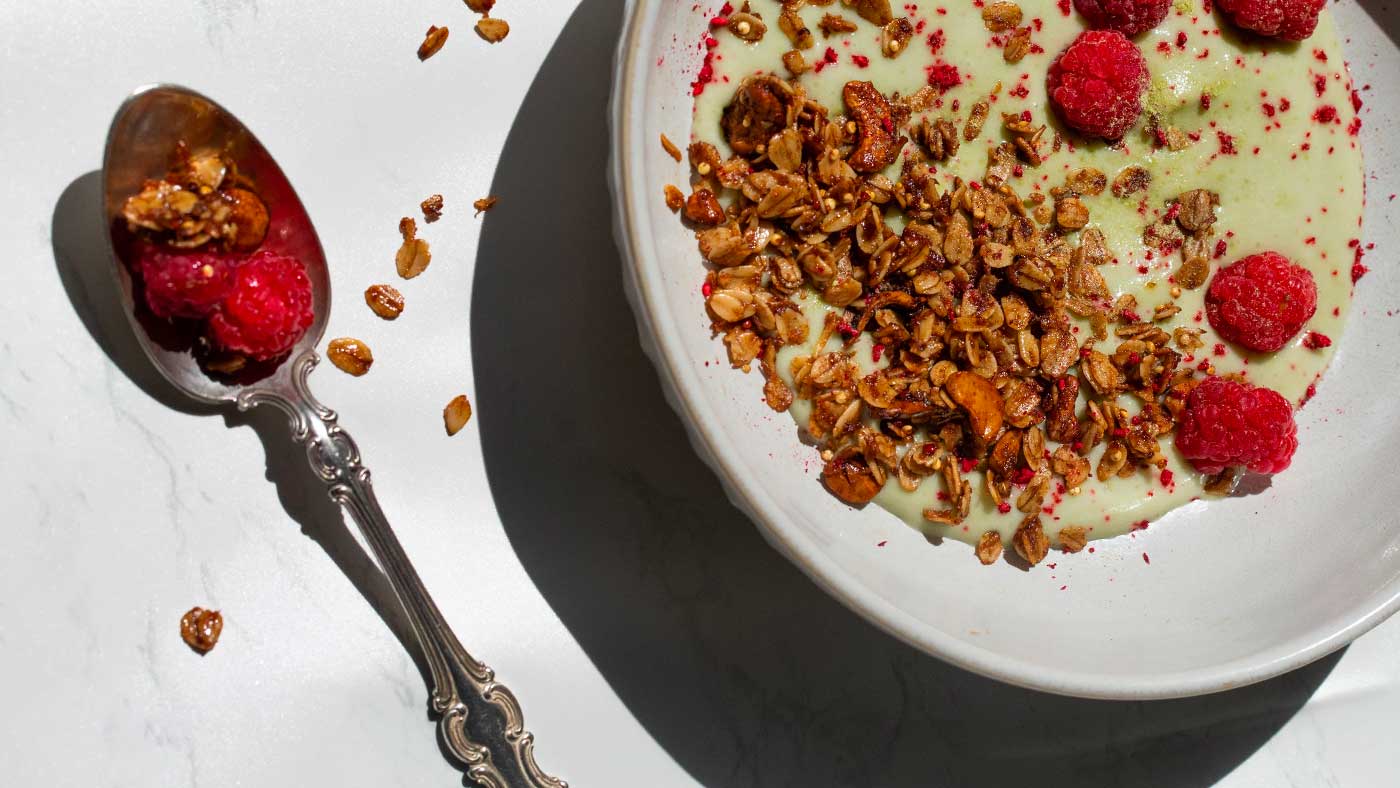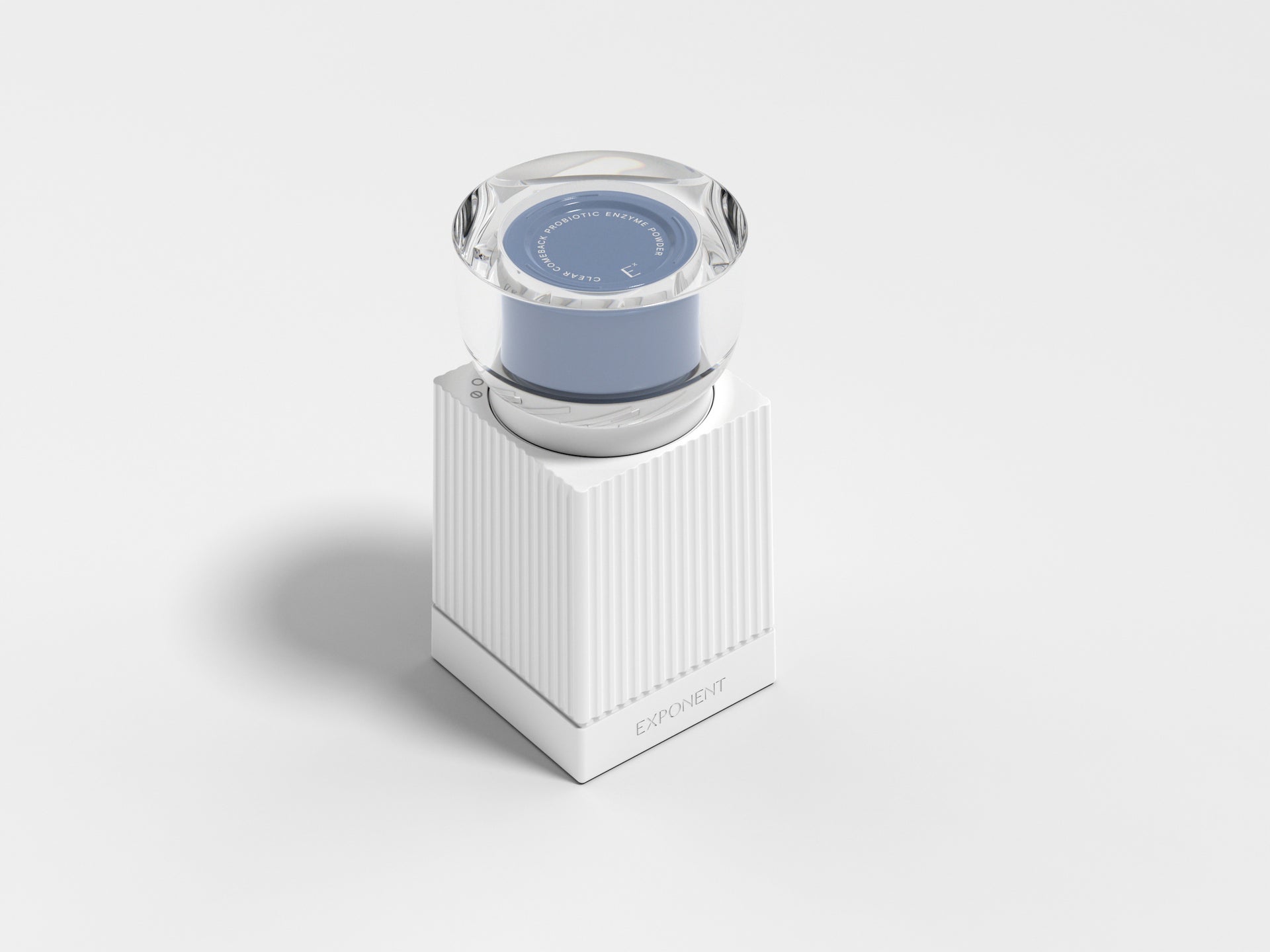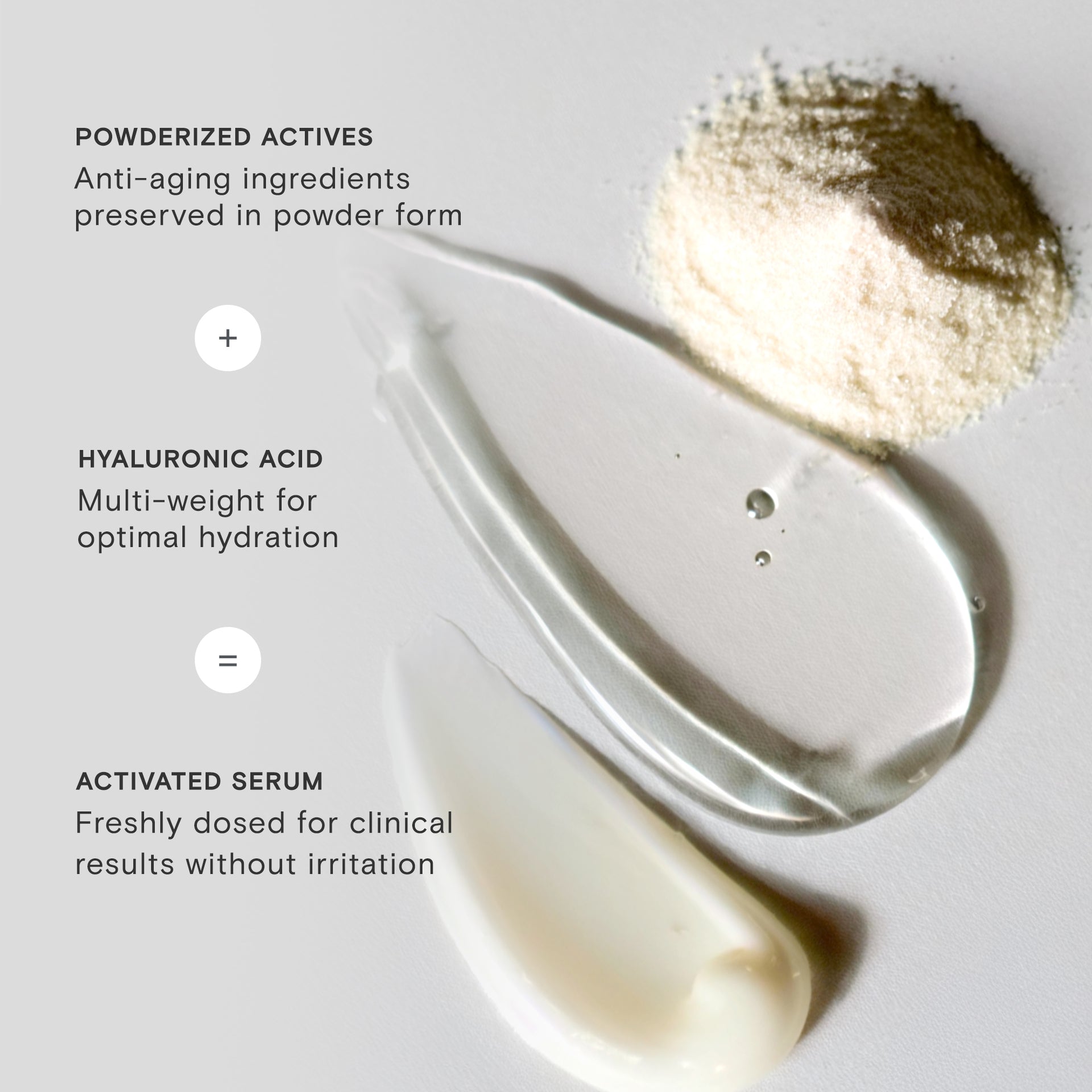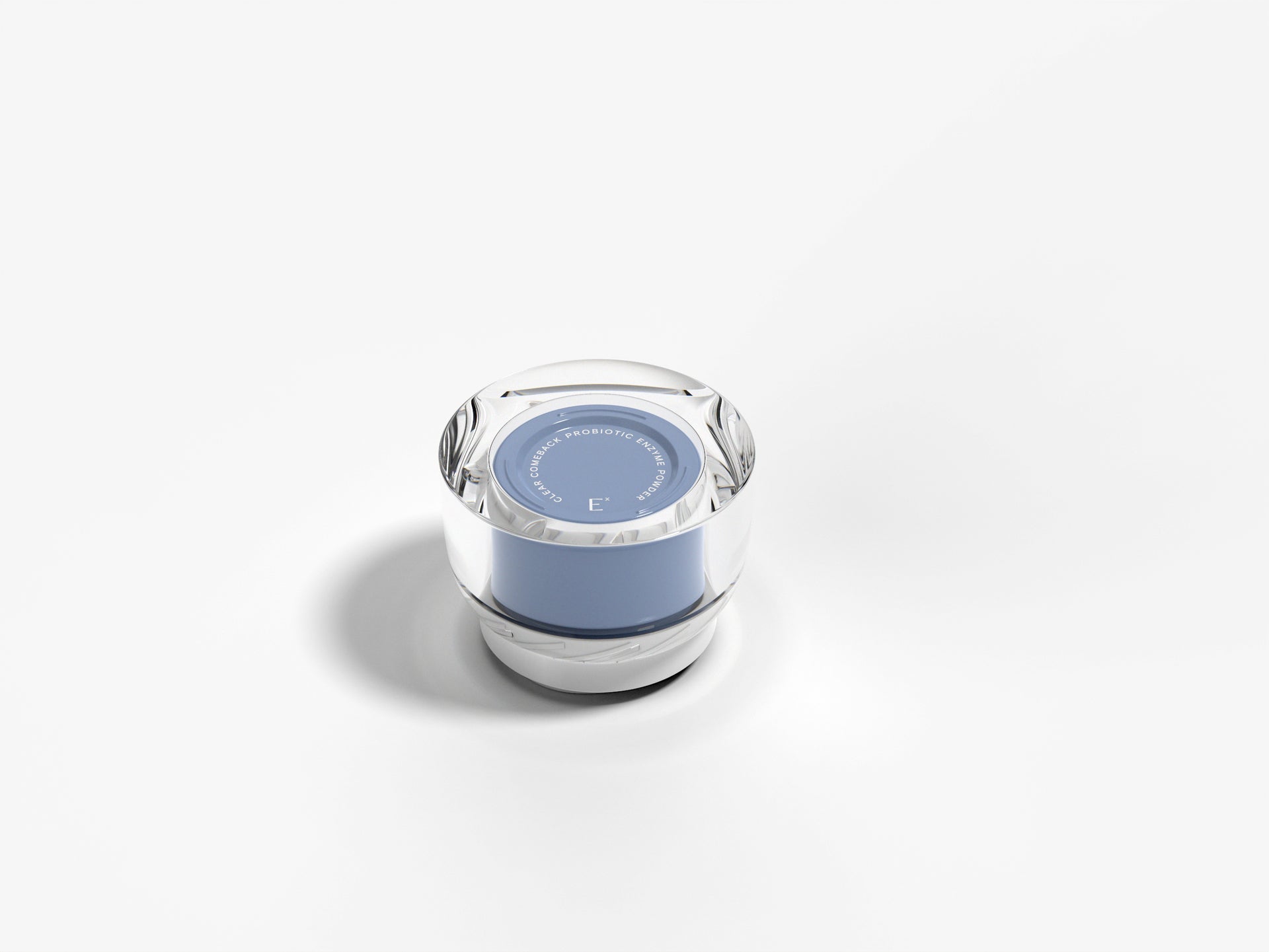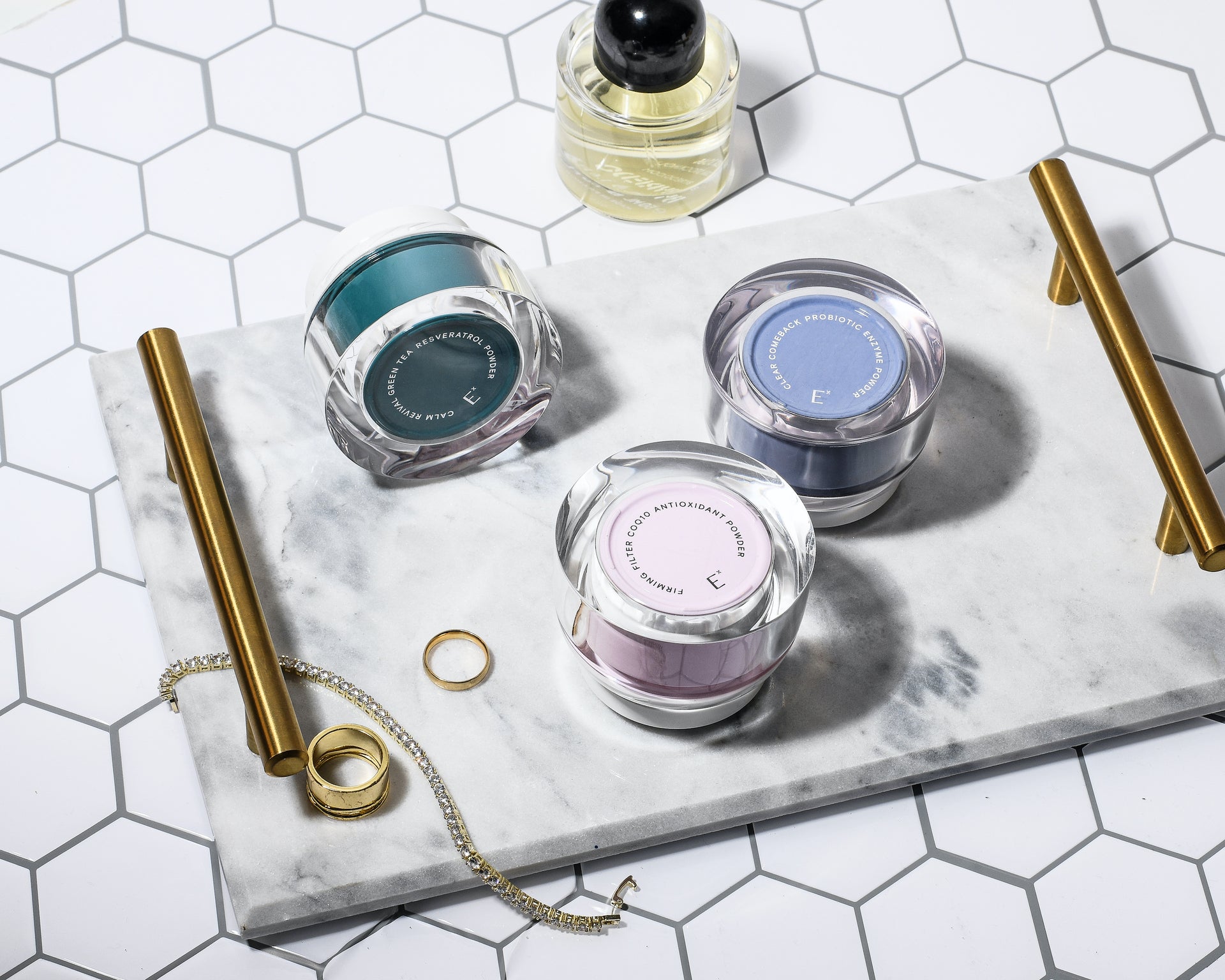Few things are quite as frustrating as waking up with pimples or being unable to tackle stubborn blemishes, so looking for ways to address them is always top of mind. The reality, however, is that it's difficult to make blanket statements about acne treatments because the truth is that everyone's skin is different. Yet, recent research shows that probiotics can help solve breakouts and address several telltale signs of acne-prone skin. Too good to be true? We analyzed the scientific data to determine whether probiotics can be "the fix" for an acne-prone complexion.
What are probiotics
Probiotics are living microorganisms — found in foods and supplements — intended to improve the body's normal microflora, normalize the gut bacteria, and improve the digestive tract's microbiome. In essence, probiotics are good bacteria that enhance the gut's health, balance digestion, and fight bad bacteria and inflammation in the body. An unbalanced gut microbiome is linked to skin conditions like acne and eczema, so maintaining a healthy digestive system is believed to improve some inflammation-related skin concerns.[1]
As far as skincare is concerned, probiotics balance the complexion, fight inflammation and nurture the skin's microflora, which is the physical barrier that prevents bacteria attacks. It translates to a complexion that's neither overly dry nor too oily and skin that's resilient enough to fight environmental stressors that may weaken or inflame it. It means that healthy skin needs healthy flora, and that's what topical probiotics do. With a lot of evidence to support the fact that a disrupted barrier and environmental damage might be the leading causes of acne, probiotics undeniably improve skin conditions in people who fight acne.[2]
The benefits of probiotics for acne
According to scientific evidence, the most efficacious treatment strategy to receive the benefits of probiotics for acne may include a combination of topical and oral therapy.[2] Here are the ways probiotics can improve acne:
Ease swelling and alleviate internal inflammation
Oral probiotics maintain a healthy digestive tract, preventing bad bacteria from wreaking havoc and establishing a proper balance of good and bad microbes. "Imbalances of bad bacteria lead to inflammation throughout the body which can lead to a series of health problems that can eventually present as acne on your skin," says Michelle Henry, M.D., a board-certified dermatologist from Manhattan.[3] The topical application of probiotics is also recognized for improving the skin's microbiome, easing inflammation, and reducing mild-to-moderate forms of acne.[4]
Prevent the formation of acne-causing bacteria
Studies also found that probiotics can decrease the counts of P.acnes bacteria that cause acne when it's topically applied for prolonged periods.[5] By doing so, probiotics reduce the chance of pimples occurring.
Reinforce the protective barrier
A damaged barrier is one of the leading causes of acne — the weaker the barrier, the higher chance for bacteria to enter and thrive in the skin. By inducing the production of ceramides, probiotics promote a healthier barrier and more resilient skin, decreasing the chance of breakouts from appearing.[6] Ceramides are lipids that make up about 50% of the outer skin layer and have a major role in maintaining a robust barrier and optimizing water retention, two factors associated with fewer pimples.
Reduce oxidative stress
Oxidative stress occurs when there's an imbalance between free radicals and antioxidants in the body and is known to cause inflammation which may contribute to acne. Studies found that oral probiotics provide antioxidant benefits and decrease UV-induced damage, minimizing the chance of free radical-induced breakouts.[7] However, more studies are required to determine whether topical probiotics provide antioxidant benefits.
Side effects of probiotics for acne
Generally, topical probiotics do not have side effects and are well tolerated by most people. However, performing a test patch before going all-in with a new skincare product is always wise. In the case of oral probiotics, there's a slight risk of side effects like bloating, constipation, and increased thirst, which usually disappear after a few weeks of continued use. For the best result, consult your doctor to see if probiotic supplements make sense for you, especially if you're pregnant or breastfeeding.
How to use probiotics for acne
By now, we know that you can use both oral and topical probiotics to tackle acne. You can get your probiotic dose from foods and drinks naturally rich in probiotics, such as yogurt, kombucha, kefir, kimchi and miso soup to help your skin from the inside. Additionally, you can incorporate probiotic skincare products into your routine to give your skin a helping hand from the outside. Probiotic skincare fights pimples by strengthening the protective barrier, counteracting acne-causing bacteria, and preventing inflammation and irritation.
-v1675340262409.jpg) |
| pictured: before and after 6 weeks of using Exponent Beauty Clear Comeback Serum. See more clinical results, reviews and shop: Exponent Beauty Clear Comeback System |
The takeaway
There's no denying that probiotics are a godsend for people who struggle with acne, particularly when used orally and topically. Need help figuring out where to start? Exponent Clear Comeback Probiotic Enzyme Serum loads a blend of probiotics, enzymes, and willow bark to reduce the apparition of blemishes, shrink pores, and smooth rough texture without irritation — as proved in clinical trials. It's the perfect addition to your acne-fighting routine, helping prevent clogged pores, blemishes, and gnarly zits.
Footnotes
- De Pessemier, B.; Grine, L.; Debaere, M.; Maes, A.; Paetzold, B.; Callewaert, C. Gut–Skin Axis: Current Knowledge of the Interrelationship between Microbial Dysbiosis and Skin Conditions. Microorganisms 2021, 9, 353, Source
- Ingrid Torjesen, Dermatology Times, March 2020 (Vol. 41, No. 3), Volume 41, Issue 3, Topical probiotics may restore skin microflora, decrease acne lesions, December 19, 2019, Source
- Faith Brar, Should You Be Taking Probiotics for Acne?, Shape, September 22, 2021, Source
- Sarah Lebeer, Eline F.M. Oerlemans, Ingmar Claes, Tim Henkens, Lize Delanghe, Sander Wuyts, Irina Spacova, Marianne F.L. van den Broek, Ines Tuyaerts, Stijn Wittouck, Ilke De Boeck, Camille N. Allonsius, Filip Kiekens, Julien Lambert, Selective targeting of skin pathobionts and inflammation with topically applied lactobacilli, Cell Reports Medicine, Volume 3, Issue 2, 2022, 100521, ISSN 2666-3791, Source
- Kober MM, Bowe WP. The effect of probiotics on immune regulation, acne, and photoaging. Int J Womens Dermatol. 2015 Apr 6;1(2):85-89, Source
- Habeebuddin M, Karnati RK, Shiroorkar PN, Nagaraja S, Asdaq SMB, Khalid Anwer M, Fattepur S. Topical Probiotics: More Than a Skin Deep. Pharmaceutics. 2022 Mar 3;14(3):557, Source
- Wang Y, Wu Y, Wang Y, Xu H, Mei X, Yu D, Wang Y, Li W. Antioxidant Properties of Probiotic Bacteria. Nutrients. 2017 May 19, Source


